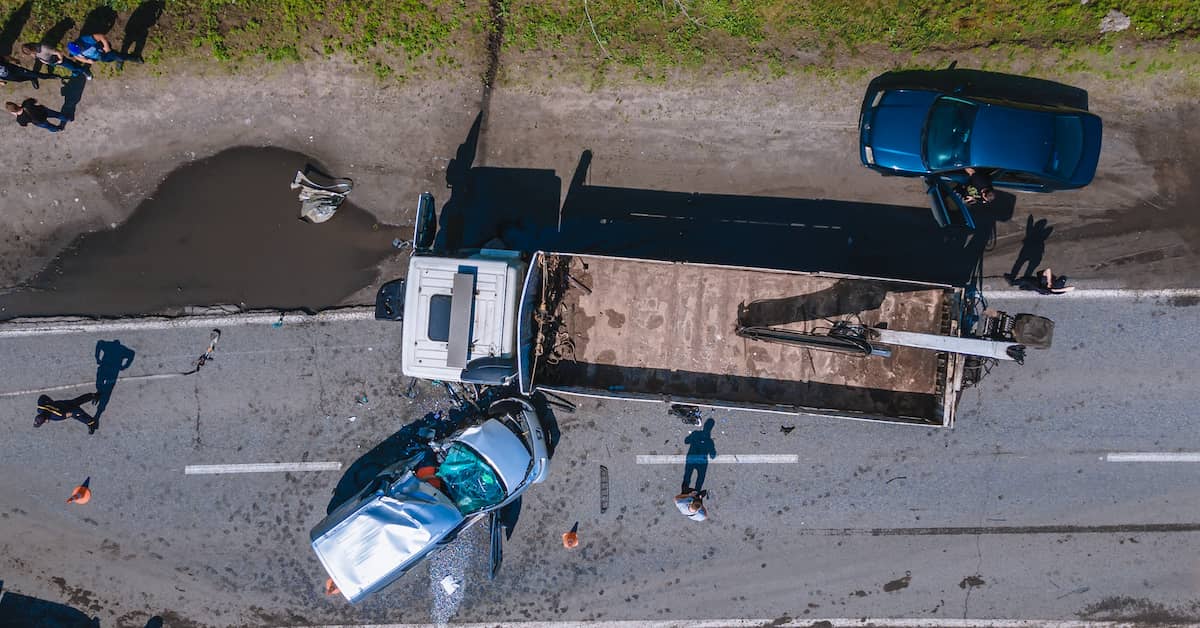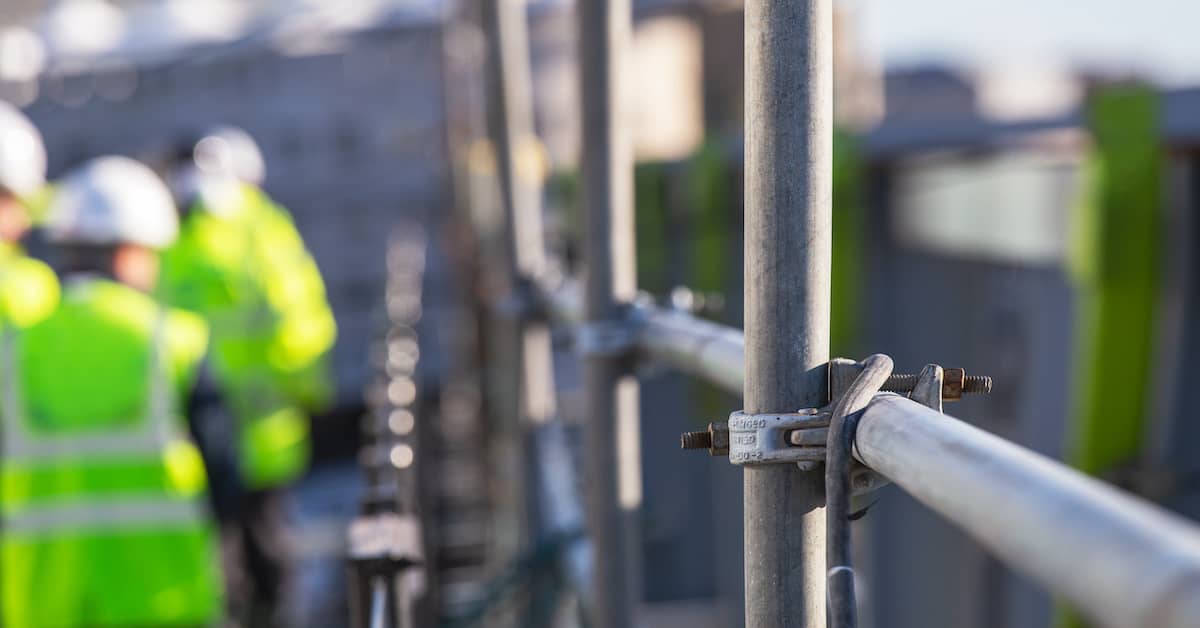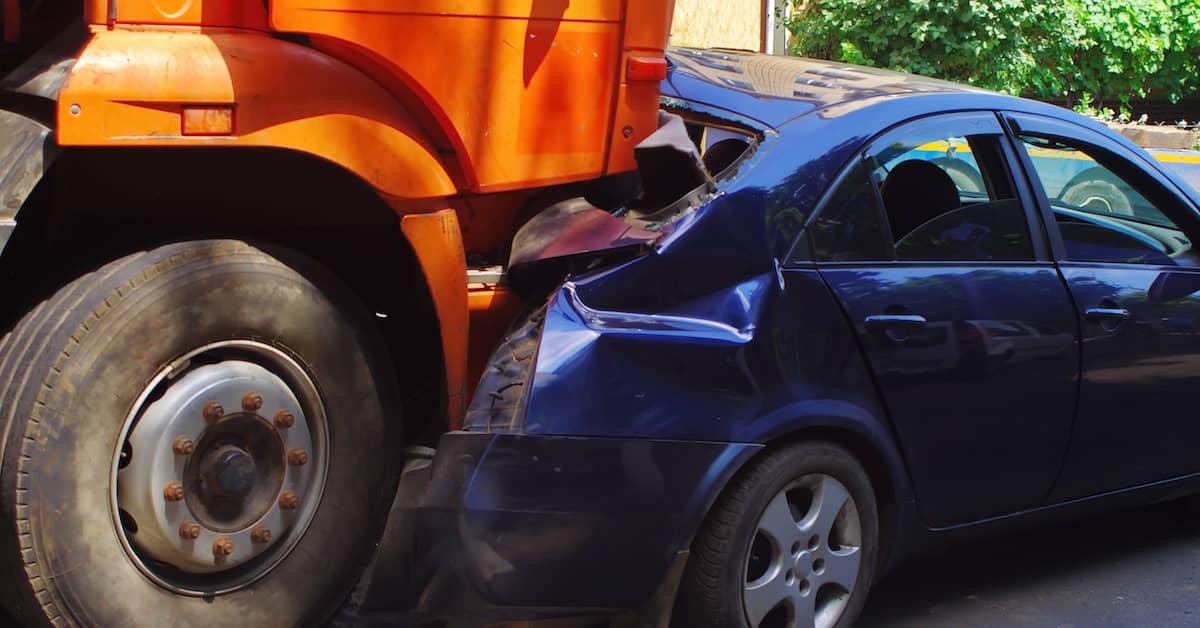
Understanding Truck Accidents: Types, Causes & Claims
When initiating a truck accident claim, understanding the intricacies of such incidents is essential. Given their size and prevalence on the road, trucks cause thousands of deaths and tens of thousands of injuries each year. Underscoring this tragic statistic is the fact that the majority of truck accidents are preventable.
Once an accident occurs, victims often find themselves navigating a complex claims process to seek just compensation. Understanding the different kinds of truck accidents, their causes, and the ins and outs of the claims process will better equip those affected. However, the guidance of a truck accident attorney is indispensable.
If you have been injured or a loved one has been killed in an accident with a large truck, Maggiano, DiGirolamo & Lizzi may be able to help. We have extensive experience with truck accident claims and would be honored to aid you in pursuing the compensation you deserve for your losses. Call (212) 543-1600 (New York) or (201) 585-9111 (New Jersey) today for a FREE case review.
What Is the Most Frequent Type of Vehicle Accident in the Trucking Industry?
The trucking industry plays a vital role in our nation’s economy, transporting goods across vast distances. Yet, with such heavy involvement on the roads, truck-related accidents are unfortunately common. The 2005 Large Truck Crash Causation Study from the Federal Motor Carrier Safety Administration (FMCSA) is considered a milestone in researching the issues that lead to commercial trucking accidents. The study evaluated 141,000 accidents involving large trucks.
Among the many types of collisions involving large trucks, rear-end collisions stand out as one of the most frequent. A rear-end collision involves one vehicle crashing into the back of another. According to the FMCSA’s study, rear-end crashes accounted for 23.1% of all truck-involved accidents. One of the primary reasons rear-end collisions are so common is the significant weight and size of large trucks, which require them to have a much longer stopping distance than passenger vehicles.
The next most notable accident type is running off the road or into another lane—a factor in an estimated 17.8% of accidents. 10.3% of accidents were sideswipes when vehicles were traveling in the same direction, 8.9% were truck rollovers, and 8% involved turning across or into the path of a vehicle. Only 3% of accidents were head-on collisions.
Interestingly, these statistics are flipped when it comes to fatal truck crashes with passenger vehicles. According to the Insurance Institute for Highway Safety (IIHS), 31% of passenger vehicle occupants who died in crashes with trucks in 2021 were in head-on collisions, and 24% were killed in side collision accidents. 23% of fatal truck accidents were rear-end collisions.
The FMCSA study also showed that 87% of truck crashes had driver-related reasons. Whereas only 10.1% of accidents were due to truck-related factors, and a mere 2.3% were due to environmental reasons. Commercial trucking companies are aware of these issues, but the industry has a long way to go in mitigating the risk of crashes.
Understanding the most frequent types of vehicle accidents in the trucking industry is important for two key reasons: First, understanding what kind of truck accidents are most prevalent allows for the issues that lead to unnecessary injuries and fatalities to be addressed. Second, for truck accident victims and their families, determining the specific type of accident is critical in identifying the liable party or parties.
Common Causes of Truck Accidents
Truck accidents are disastrous due to the hulking size and weight of commercial trucks. They are absolutely lethal when they meet with passenger vehicles, motorcycles, pedestrians, and cyclists. According to the National Safety Council (NSC), there were 5,700 lives lost in truck accidents in 2021. That is an 18% increase from 2020 and a 49% increase over the prior 10 years. Too many injuries and fatalities caused each year by trucks could have easily been prevented.
Read More: Truck Accidents Vs Car Accidents: What’s the Difference?
Many agencies regulate truck driving and work to reduce truck-related accidents. These include the U.S. Department of Transportation (DOT) and the FMCSA. These same organizations know and understand the reasons behind truck accidents and the precautions that must be taken to prevent them.
Passenger Vehicle Drivers & Trucking Accidents
You may be surprised to find that drivers of passenger vehicles are often responsible for commercial trucking accidents. Car drivers seem to forget that trucks have some limitations regarding acceleration, braking, and visibility. Here are some other common mistakes that car drivers make when sharing the roadways with trucks:
- Ignoring a truck’s “No-zones”—the area behind and beside a commercial truck where there is little to no visibility
- Changing lanes too quickly in front of a truck
- Misjudging how fast a truck is traveling when making a left turn in front of the truck
- Passing unsafely—particularly passing with insufficient headway
- Being unprepared for the turbulence or crosswind when passing beside a truck
- Driving between two large trucks
Commercial Trucks Causing Accidents
Passenger vehicles aren’t the only ones causing truck accidents. Sometimes, commercial trucks are to blame for these serious accidents. For the most part, the truck drivers are skilled and patient, as they have received proper training for the job. However, accidents can still happen. These accidents often stem from:
- Inadequate training on driving techniques and safety concerns
- Systems of compensation that encourage fast vehicle speeds and more hours on the road, leading to driver fatigue
- Unrealistic schedules and expectations that encourage rushing even though there are safety risks
Understanding the Leading Causes of Commercial Truck Accidents
The FMCSA refers to the leading causes of commercial truck accidents as “critical reasons.” According to the FMCSA, 87% of all critical reasons are driver-related, and 10% are truck-related. The remaining 3% are attributable to environmental factors.
While the vast majority of vehicle accidents in the truck industry involve driver-related factors, the single most common cause of truck accidents is brake failure. The FMCSA’s data indicate that brake problems play a role in 29.4% of all commercial truck accidents. That’s more than 40,000 accidents per year.
In order from most to least common, the 10 most frequent causes of commercial truck accidents are those involving:
- Brake issues
- Traffic disruption (i.e., another accident, traffic jam)
- Driving too fast for the current road and weather conditions
- Driving on unfamiliar roads
- Over-the-counter (OTC) drug use
- Inadequate surveillance (i.e., failure to check blind spots)
- Truck driver fatigue
- Work-related pressures
- Illegal driving maneuvers
- Inattentive driving
The fact that accidents involving brakes are the most frequent contributing factor to vehicle accidents in the trucking industry is cause for concern. Simply put, there is no excuse for a large commercial truck being on the road with faulty brakes. Truck manufacturers have the capabilities required to install safe brakes on their vehicles, and trucking companies have plenty of resources to maintain their trucks according to manufacturers’ recommendations.
So, why do accidents so frequently involve brake problems? The simple answer is that companies cut corners. They put their profits first, even if this means potentially putting dangerous trucks on the road. This same profit-first approach leads to trucking companies hiring inexperienced drivers and forcing them to meet tight deadlines while spending too many hours behind the wheel.
Regardless of the specific issues involved, if a company makes a poor decision that leads to a serious or fatal accident, that company can—and should—be held fully accountable. A truck accident lawyer will have the experience and resources necessary to identify what caused the accident and pursue the maximum compensation you deserve.
Other Notable Statistics on Commercial Truck Accidents
The 2021 data collected by organizations like the IIHS and the NSC provide additional valuable insights on the threat posed by large trucks:
- Most Fatal Truck Accidents Involve Tractor Trailers: According to the IIHS, nearly three-quarters (74%) of fatal commercial truck accidents involved tractor-trailers. Only about one-quarter of accidents involved single-unit trucks.
- Most Fatal Truck Accidents Occur on Rural Roads: Per the NSC, just over half (54%) of truck accident fatalities occurred on rural roads. This means that slightly less than half occurred in busy urban areas like eastern New Jersey and New York City.
- Most Fatal Truck Accidents Occur Off of the Interstate: While many assume that most truck accident deaths occur on interstates, the NSC’s data shows that nearly three-quarters (74%) occurred on non-interstate roads.
- Most Fatal Truck Accidents Occur During the Daytime: Approximately two-thirds (64%) of all deadly truck accidents occurred during daylight hours.
- Fatal Truck Accidents Are Most Common During the Summer and Fall: The four-month period from July through October saw the highest volume of truck accidents. The single month with the most truck accidents was September.
Who Is Responsible for Trucking Accidents?
Here are some of the people who may be held liable in a trucking accident:
- The truck’s driver
- The owner of the truck or trailer
- The person or company that leased the truck
- The truck manufacturer
- The shipper or loader of the truck’s cargo
In many situations, the trucking, hauling, and leasing companies will argue over who owes the victim compensation for injuries. This is because many factors may have a hand in the accident. A knowledgeable truck accident attorney understands how to unravel liability in these complex cases.
How Do Truck Accident Claims Work?
Truck accident claims differ greatly from the litigation that follows most other types of motor vehicle crashes. Suffering severe injuries in a truck accident can impact all aspects of your life, and losing a loved one can do so as well. Seeking financial compensation for your losses is a fundamental part of recovery.
Most people don’t know what to expect when they have a truck accident claim. It is crucial to have a knowledgeable truck accident lawyer there to guide you through the steps of the claims process.
7 Steps in a Truck Accident Claim
Truck accident claims involve a lot of moving parts. However, the most important parts of the process can be boiled down as follows:
1. Investigate the Accident
The first step is to investigate the truck accident. Ideally, this investigation should take place as soon as possible. After being involved or losing a loved one in a serious truck accident, you should immediately engage a law firm to conduct an investigation.
Investigating a truck accident is a multi-step process. It begins with a forensic examination of the accident scene. Skid marks, debris on the road, damaged guardrails, and various other forms of evidence may all be available to examine for a limited amount of time.
In addition to collecting forensic evidence at the scene of the collision, a truck accident investigation may also involve examining other evidence and sources of information, such as:
- Stoplight & traffic patterns
- Road signs
- Eyewitness testimony
- Traffic camera or security camera footage
- Photos & videos
- Cell phone records
- Driver logs
- Truck maintenance records
- Shipping manifests
Read More: Should I Take Photos at the Scene of a Truck Accident?
2. Determine Who Caused the Accident
Based on the available evidence, your lawyer will determine the party or parties who caused the accident. While truck driver negligence is a common factor, this is far from the only issue that can lead to a collision.
Truck accident claims may be brought against truck manufacturers, trucking companies, and shipping companies (to name a few). Experienced truck accident attorneys will investigate thoroughly to identify errors on the part of these and other parties.
3. Determine What Company or Companies Are Liable
Once your lawyer determines what caused the accident and the party or parties at fault, they can determine who is liable for the crash. For instance:
- If the truck driver caused the crash, the truck driver’s employer or insurance company could be liable.
- If a truck defect caused the crash, the truck’s manufacturer or the company that manufactured the defective component could be liable.
- If a cargo spill or other cargo-related issue caused the crash, the trucking or shipping company could be liable.
- If inadequate truck maintenance caused the crash, the trucking company and/or the mechanic or maintenance facility working on the truck could be liable.
- If another driver caused the crash, then their auto insurance company or employer could be liable.
These are just examples. There are numerous possibilities, and multiple companies and insurers could share liability for the accident. In some cases, government agencies can also be held liable for road construction issues and defects. Each accident will have its own unique circumstances to address.
4. Calculate Your Truck Accident Losses
While working to establish liability, your lawyer will also be working to calculate the damages you have sustained as a result of the trucking accident. Potential compensation plaintiffs may be entitled to in truck accident claims include:
- Medical expenses
- Lost wages
- Loss of earning capacity
- Pain and suffering
- Scarring & disfigurement
- Disability
- Loss of companionship & consortium
- Loss of enjoyment of life
You will need to be actively involved in helping your lawyer calculate the totality of damages in your truck accident claim. The more documentation you provide, the better your attorney can estimate your losses.
5. File Your Truck Accident Claim (Or Claims)
After determining your options for pursuing compensation, the next step is to assert your legal rights. This may involve initiating settlement negotiations with insurers, filing a lawsuit, or some combination of the two.
6. Negotiate for a Settlement
Although there are no guarantees, most successful truck accident claims are resolved through settlement negotiations. These negotiations can take time—especially if multiple defendants share liability for the crash—so you must be patient while your lawyer advocates on your behalf.
7. Go to Court If Necessary
If you do not receive a fair settlement offer, it may be necessary to file a lawsuit. Ultimately, your attorney may need to present your case in court.
Many truck accident claims are settled during litigation. But, if yours doesn’t, working with an experienced trial lawyer who knows how to prepare a case, represent your interests in the courtroom, and win is essential.
Attorneys Handling Truck Accident Claims Throughout New York & New Jersey
Truck accidents are not your average auto collision. If you or a member of your family suffered harm in a trucking accident, working with a dedicated law firm is vital.
The truck accident lawyers at Maggiano, DiGirolamo & Lizzi are skilled in handling truck accident claims and other personal injury matters. We are committed to pursuing the maximum compensation in your case while providing compassionate, hands-on support and guidance at all times.
Our attorneys provide the highest standard of legal service, achieving the optimal outcome on our clients’ behalf. Contact Maggiano, DiGirolamo & Lizzi today for a FREE case review. Our trucking accident attorneys serve clients in New York and New Jersey.

















